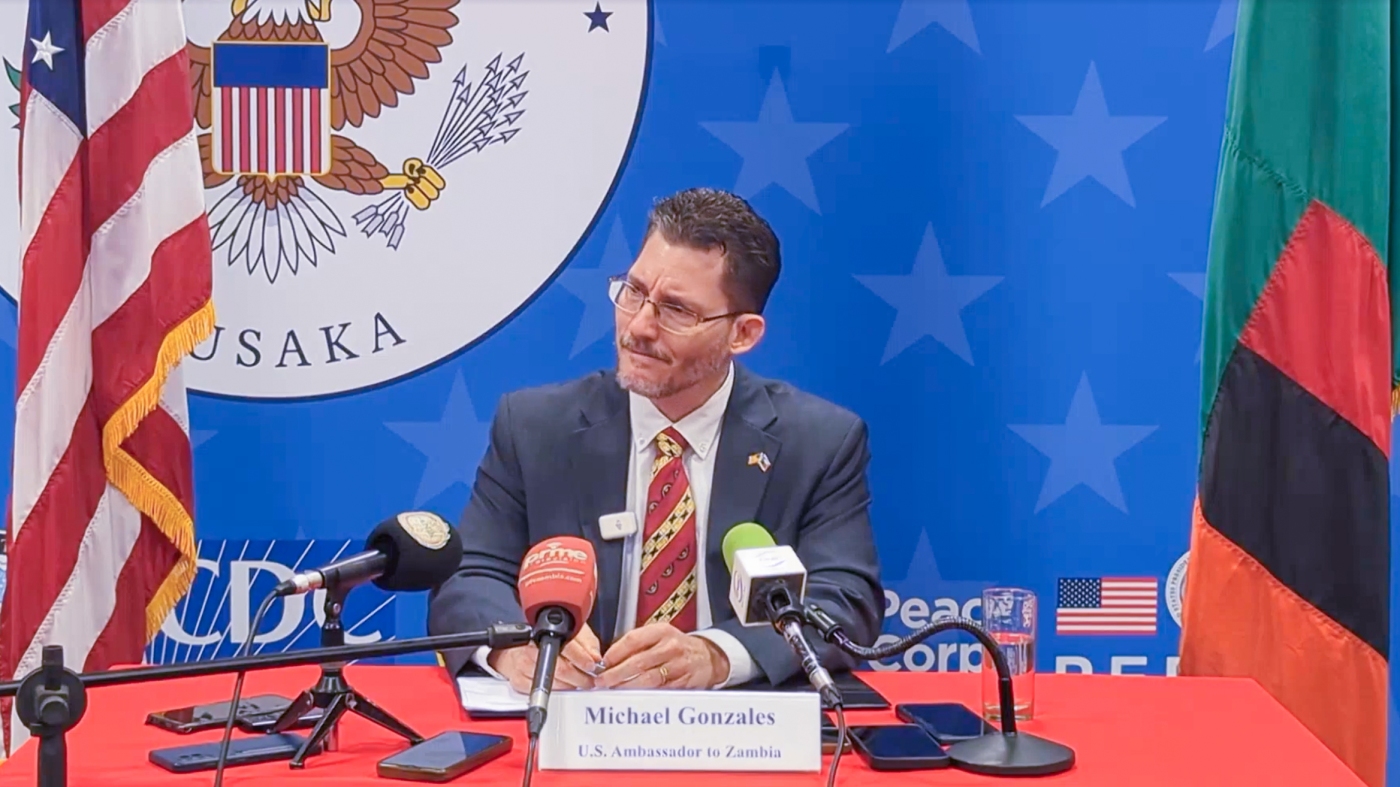The Emotional Press Conference of U.S. Ambassador to Zambia
A Moment of Truth
In late 2021, U.S. Ambassador to Zambia, Michael Gonzales, stood before the press, his voice trembling with emotion. The reason? A stark revelation that cut deep into the heart of his mission: medications and medical supplies, donated by the U.S. to aid Zambia, were being stolen. This wasn’t just a logistical setback; it was a betrayal of trust and a stark illustration of the corruption and mismanagement plaguing the Zambian healthcare system. Gonzales’ tears were not a sign of weakness but a powerful testament to the gravity of the situation and the personal impact it had on him.
A Tough Decision
The discovery led to a tough decision: the U.S. would cut $50 million in aid. This wasn’t a knee-jerk reaction but a deliberate response to the corruption that had compromised the aid’s intended beneficiaries. Gonzales’ emotional response during the press conference was a clear indication of his frustration and disappointment. He expressed his anguish, stating, “I’ve cried over this because I know that it’s not going to be senior officials or the senior people who are going to suffer from this. It’s going to be the people who need it the most.” This statement resonated deeply, portraying him as a champion for the vulnerable, genuinely concerned about the people he was supposed to help.
The Humanitarian Dilemma
The decision to cut aid was a difficult one, but it was driven by a desire to ensure that future aid would be used effectively and reach those who genuinely needed it. The theft of medications meant that the most vulnerable populations—those relying on these supplies for survival—were being deprived of essential healthcare. By cutting aid, the U.S. aimed to send a strong message against corruption and to pressure Zambian authorities to address the issue more seriously. This move highlighted the complex balancing act that diplomats often have to perform, weighing the need for aid against the need for accountability.
Public Response: A Resounding Endorsement
The public reaction to Gonzales’ emotional press conference was overwhelmingly positive. Many saw his tears as a sign of his genuine concern and dedication to his mission. His actions were seen as a bold move to combat corruption and ensure that aid reached its intended recipients. This incident shone a spotlight on the challenges faced by diplomats who often have to navigate complex political and humanitarian landscapes, all while striving to uphold humanitarian values.
The Broader Picture
The incident involving Michael Gonzales serves as a microcosm of the broader challenges faced by U.S. diplomats. They often find themselves in difficult positions, balancing the need to uphold humanitarian values with the realities of political and economic constraints. The emotional outpouring during the press conference underscored the personal toll that such decisions can take on diplomats. It was a stark reminder that behind every diplomatic decision, there are individuals who care deeply about the people they are supposed to help.
The Human Face of Diplomacy
Diplomats like Gonzales play a crucial role in humanitarian crises. They are often the ones who have to make tough decisions that balance the need for aid with the need to ensure that aid is used effectively. The emotional response during the press conference highlighted the human side of diplomacy, showing that behind the official statements and decisions, there are individuals who care deeply about the people they are supposed to help. This human face of diplomacy is often overshadowed by the formalities and protocols, but it is a vital aspect of effective humanitarian work.
The Ripple Effect
The decision to cut aid sent ripples beyond Zambia. It served as a wake-up call to other countries receiving aid, highlighting the importance of transparency and accountability. It also sparked conversations about the role of donors in ensuring that their aid is used effectively. The incident underscored the need for robust monitoring and evaluation mechanisms to prevent misuse of aid and to ensure that it reaches those who need it most.
The Road Ahead
The emotional press conference of Michael Gonzales serves as a call to action for both diplomats and the public. It reminds us of the importance of transparency, accountability, and genuine concern for the people affected by humanitarian crises. The decision to cut aid was a difficult one, but it was driven by a desire to ensure that future aid would be used effectively and reach those who genuinely needed it. It was a bold step towards reform and a testament to the power of diplomacy in driving change.
A Call to Action
In the end, the actions of Michael Gonzales highlight the complex and often emotionally charged nature of diplomacy. His tears were not just a sign of personal distress but a call to action for all those involved in humanitarian efforts. It is a reminder that behind every diplomatic decision, there are real people and real lives at stake. The incident serves as a powerful lesson in the importance of integrity, transparency, and accountability in humanitarian work. It is a call to action for all stakeholders to work together to ensure that aid reaches those who need it most, and that it is used effectively and responsibly. The road ahead may be challenging, but with a shared commitment to these principles, we can make a real difference in the lives of those who need it most.

